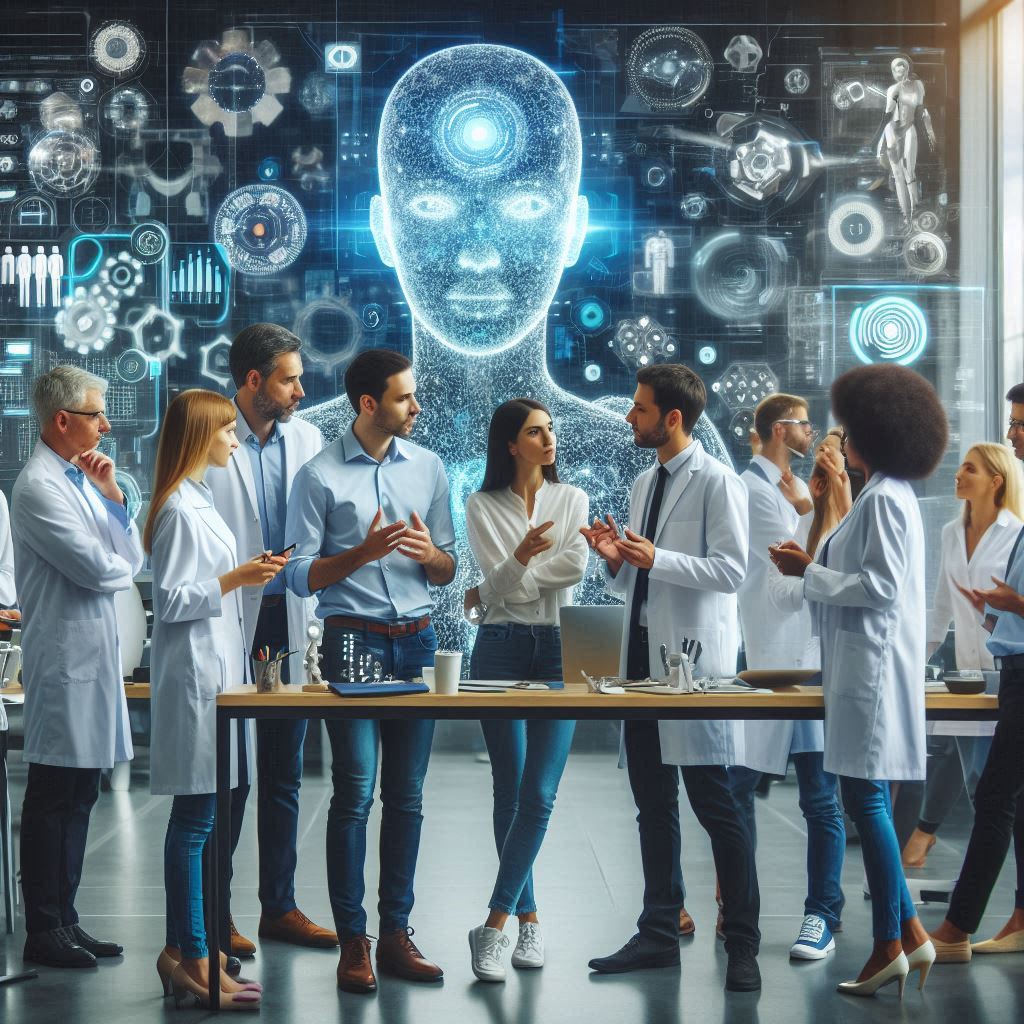Artificial Intelligence (AI)
Artificial Intelligence (AI) refers to the simulation of human intelligence in machines that are programmed to think, learn, and problem-solve like humans. It is a multidisciplinary field that draws from computer science, mathematics, cognitive science, and many other domains. AI has grown rapidly over the past few decades, transforming industries and daily life in unprecedented ways.
The concept of artificial intelligence is not new. It has existed in myths and science fiction for centuries, with machines imagined to possess human-like abilities. However, real progress began in the 20th century when computing power started to advance. Early AI research focused on problem-solving and symbolic methods, gradually evolving into the deep learning and neural networks we see today.
AI can be categorized into two major types: narrow AI and general AI. Narrow AI, also known as weak AI, is designed to perform a specific task, such as facial recognition or internet search. It is the most common form of AI in use today. General AI, or strong AI, aims to replicate human cognitive abilities and perform any intellectual task that a human can do. While general AI remains theoretical, research continues in this direction.
One of the most significant breakthroughs in AI came with the development of machine learning. Machine learning enables computers to learn from data without being explicitly programmed. It uses algorithms to identify patterns in data and improve from experience. This technology powers many AI applications, such as recommendation systems, speech recognition, and language translation.
Deep learning is a subset of machine learning that uses artificial neural networks with multiple layers. It mimics the structure of the human brain and has been particularly successful in tasks such as image recognition, natural language processing, and autonomous vehicles. Deep learning algorithms require large amounts of data and computing power, but they have pushed the boundaries of what AI can achieve.
AI technologies are embedded in everyday life. Voice assistants like Siri, Alexa, and Google Assistant rely on natural language processing to understand and respond to user queries. Social media platforms use AI to curate content, detect inappropriate material, and personalize user experiences. E-commerce websites recommend products using AI-driven algorithms that analyze browsing history and purchasing patterns.
In healthcare, AI is used to enhance diagnostics, predict diseases, and personalize treatment plans. Machine learning algorithms can analyze medical images, such as X-rays and MRIs, to detect anomalies that might be missed by human doctors. AI is also used in drug discovery, streamlining the process of identifying new medications and reducing development time.
In the field of finance, AI is revolutionizing how businesses operate. It is used for fraud detection, credit scoring, and algorithmic trading. AI systems can monitor transactions in real time, detect unusual patterns, and alert institutions to potential threats. In customer service, AI chatbots provide instant responses, handle common inquiries, and improve user satisfaction.
The transportation industry is being transformed by AI through the development of autonomous vehicles. Self-driving cars use sensors, cameras, and AI algorithms to perceive their environment and make driving decisions. Companies like Tesla, Waymo, and Uber are investing heavily in this technology, aiming to reduce accidents and make transportation more efficient.
AI is also making its mark in education. Intelligent tutoring systems provide personalized learning experiences, adapting content and pace based on the student’s performance. AI can assist teachers by grading assignments, analyzing learning patterns, and identifying students who may need additional support. It enables a more data-driven approach to education.
In the creative industries, AI is being used to generate music, art, and literature. Tools like DALL·E and ChatGPT demonstrate how AI can create original content based on prompts. While some view this as a threat to traditional creativity, others see it as a tool to augment human imagination and productivity.
Despite its many advantages, AI poses significant challenges and ethical concerns. One major issue is bias in AI algorithms. If training data contains biases, AI systems can perpetuate or even amplify those biases, leading to unfair outcomes. For example, biased AI in hiring systems or law enforcement can result in discrimination against certain groups.
Privacy is another concern. AI systems often rely on vast amounts of personal data to function effectively. There are risks associated with data collection, storage, and usage. Ensuring that AI respects user privacy and complies with regulations like the GDPR is crucial for building public trust.
Job displacement due to automation is a topic of ongoing debate. While AI can enhance productivity and reduce repetitive tasks, it can also lead to the loss of certain jobs. The challenge lies in preparing.
